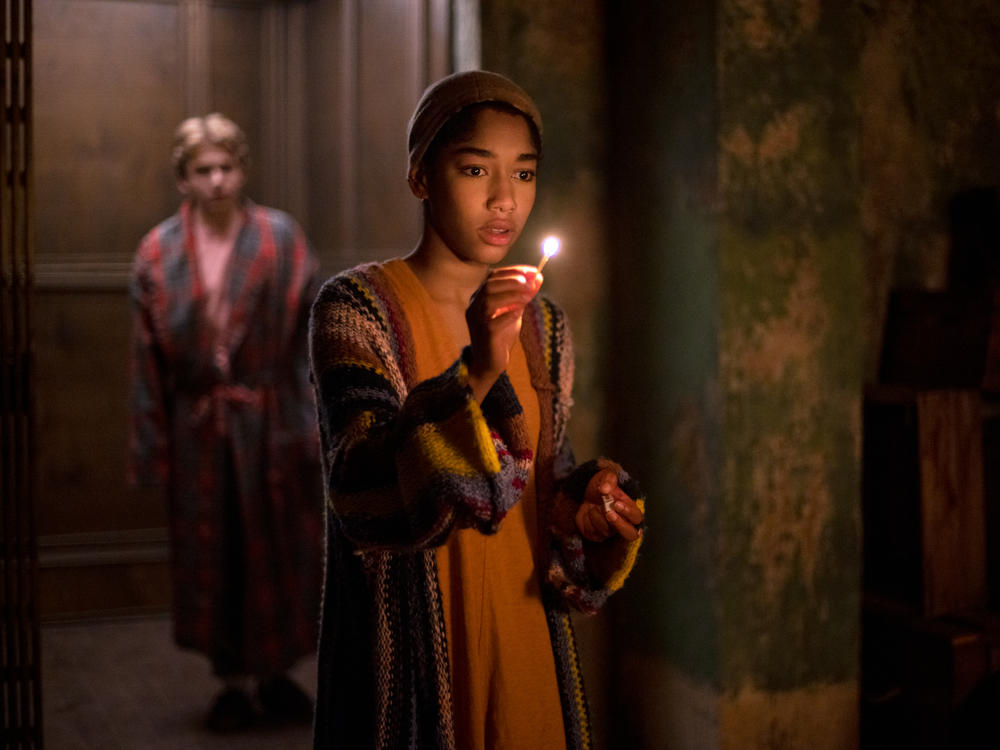Section Branding
Header Content
Director Mike Flanagan said jump scares are overused. Then he set a record for them
Primary Content
If you're looking for the perfect thriller to binge this October, look no further than The Midnight Club.
Director Mike Flanagan, who is best known for shows including The Haunting of Hill House and Midnight Mass on Netflix, has a new show based off the beloved young adult horror novel by Christopher Pike you might remember picking up from your school library.
The Midnight Club is set in 1994 and follows the story of Ilonka — an 18-year-old who was set to start her first semester at Stanford University, but is diagnosed with terminal cancer.
She goes to Brightcliffe — a hospice care facility specifically for young people with terminal illnesses. There she meets a group of young people, who refer to themselves as The Midnight Club, that like to sneak out after curfew and get together to tell scary stories. But what they don't tell Ilonka is that the stories can sometimes come true.
Flanagan talked with NPR's Ayesha Rascoe on Weekend Edition about the role of The Midnight Club book in his youth and his thoughts on jump scares.
On what drew him to The Midnight Club
The Midnight Club is based on a book I read when I was in high school by Christopher Pike. If you were into horror, very young as a reader, you started with R.L. Stine and then you kind of graduated to Christopher Pike. And then if you kind of stuck with the genre, you were after Stephen King after that.
It was such a formative part of my life. And The Midnight Club was one that really kind of hit me in the heart and dealt with death and mortality in a way that I was not expecting to be confronted with at that age. This is my kind of nostalgic attempt to dig into what got me into horror in the first place.
On how to make a horror series when the fear of death is removed
Typically in horror, the backbone of the whole thing is: Are these people going to live? Are they going to survive? And for a story like this, the outcomes are predetermined. We're told from the very first episode that these characters are here because they're dying imminently, and how you approach the horror of that becomes more about the horror of not living fully before you die and the horror of not knowing where you're going. It really becomes a show more about life than about death.
On The Midnight Club's first episode breaking a Guinness world record for number of jump scares
There's a fundamental difference between being startled and scared. And the Guinness thing is really funny to me because because I am not the filmmaker who likes jump scares. There are some I love. One of the greatest of all time jump scares is in Jaws and I love it. Exorcist 3 has an amazing just out of your seat jump scare that I adore.
I think they're overused is really my point.
It's not that I dislike them. I react very much to not the jump scare itself, but to the insistence that I get usually from executives that say, "you need to have a prescribed number of [jump scares] in the show, and you need to have five jump scares in the first 15 minutes or else it's not scary."
I just really wanted to kind of put it to rest. And I finally was like, all right, fine. Here's all of them. And we set a record. And so now I've got this Guinness certificate, which I think gives me the right the next time I get the note where they say we want extra jump scares, or I can say, "well I've got the world record."
Copyright 2022 NPR. To see more, visit https://www.npr.org.

